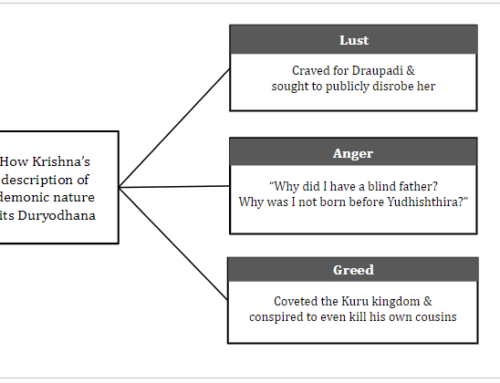Scripture often talks about times so radically different from ours that we may wonder: is this relevant for me?
Yes, definitely. The relevance comes from the fact that the essential challenge facinghumanity always remains the same: how to live spiritually in the material world. For meeting this challenge, regular study of scriptures provides us three invaluable gifts:
1. Strengthens the intelligence: Our destiny is shaped largely by our choices. To make wise choices, we need to have a strong intelligence – not a weak intelligence that gets carried away by the heat of the moment without considering long-term consequences. Because scriptures like the Gita and the Bhagavatam dwell consistently on the long-term, in fact eternal, issues of life, studying themnourishes us intellectually, thereby enabling us to take sound decisions.
2. Stabilizes the mind: Our mind is frequently restless with hopes of pleasure and fears of trouble. This restlessness impedes or even subverts our ability to work effectively in both our spiritual and material lives. When we study scripture diligently, contemplation on those sacred words brings the mind in contact with Krishna. This divine experience of an unchanging reality that is beyond the ups and downs of the world calms and comforts the mind.
3. Sustains the heart: Sometimes, despite our best efforts, life slaps us with obstacles and reversals that seem insurmountable. At such times when our heart tends to sink into self-pity, scriptural study inspires us with examples of exalted devotees who were tested far more than us. Meditating on how they always remained faithful and how Krishna ultimately redeemed them infuses our heart with hope, courage and determination.
Given such inestimable benefits of scriptural study, the Bhagavad-gita (16.24) rightly enjoins that we shape all our actions according to scripture.
Bhagavad Gita Chapter 16 Text 24
“One should therefore understand what is duty and what is not duty by the regulations of the scriptures. Knowing such rules and regulations, one should act so that he may gradually be elevated.”


Leave A Comment